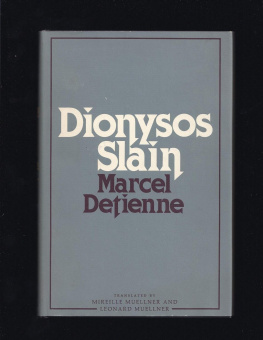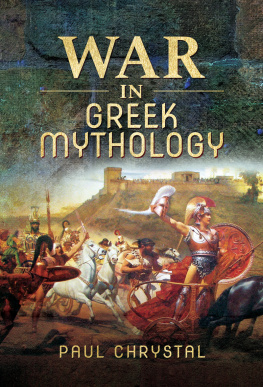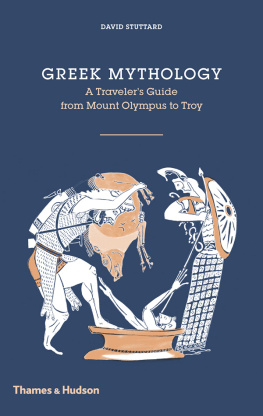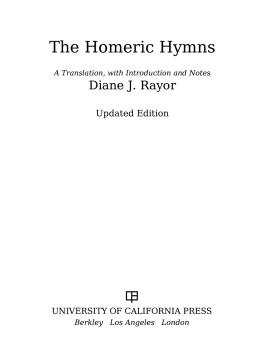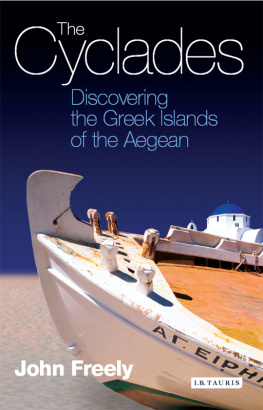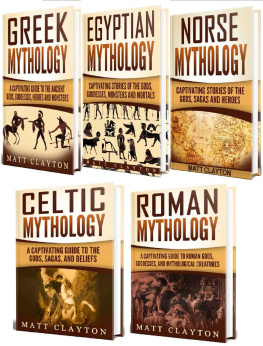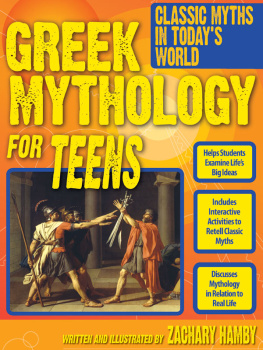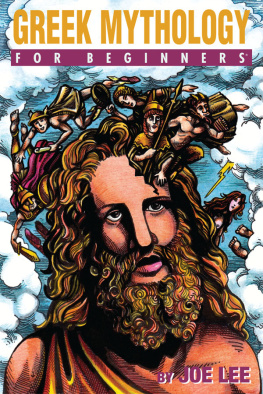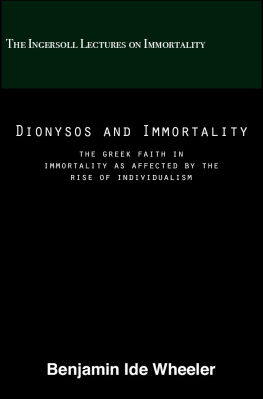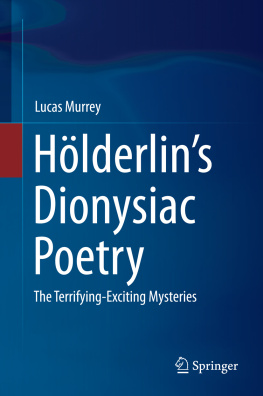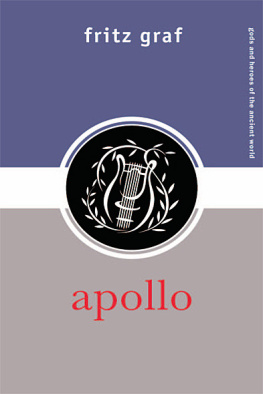Marcel Detienne - Dionysos Slain
Here you can read online Marcel Detienne - Dionysos Slain full text of the book (entire story) in english for free. Download pdf and epub, get meaning, cover and reviews about this ebook. year: 2021, publisher: Libre Dionysia, genre: Romance novel. Description of the work, (preface) as well as reviews are available. Best literature library LitArk.com created for fans of good reading and offers a wide selection of genres:
Romance novel
Science fiction
Adventure
Detective
Science
History
Home and family
Prose
Art
Politics
Computer
Non-fiction
Religion
Business
Children
Humor
Choose a favorite category and find really read worthwhile books. Enjoy immersion in the world of imagination, feel the emotions of the characters or learn something new for yourself, make an fascinating discovery.
- Book:Dionysos Slain
- Author:
- Publisher:Libre Dionysia
- Genre:
- Year:2021
- Rating:5 / 5
- Favourites:Add to favourites
- Your mark:
- 100
- 1
- 2
- 3
- 4
- 5
Dionysos Slain: summary, description and annotation
We offer to read an annotation, description, summary or preface (depends on what the author of the book "Dionysos Slain" wrote himself). If you haven't found the necessary information about the book — write in the comments, we will try to find it.
Dionysos Slain — read online for free the complete book (whole text) full work
Below is the text of the book, divided by pages. System saving the place of the last page read, allows you to conveniently read the book "Dionysos Slain" online for free, without having to search again every time where you left off. Put a bookmark, and you can go to the page where you finished reading at any time.
Font size:
Interval:
Bookmark:
| Dionysos Slain | |
| Marcel Detienne | |
| Libre Dionysia (01/1979) | |
| Tags: | History, Non-Fiction, Spirituality |
| Historyttt Non-Fictionttt Spiritualityttt |
A collection of four essays on classical greek mythology surrounding the god Dionysos (Dionysus).
MARCEL DETIENNE
Translated by
Mireille Muellner and Leonard Muellner
THE JOHNS HOPKINS UNIVERSITY PRESS
Baltimore and London
Conversion, 2021, Libre Dionysia
Libre Dionysia - Making texts available and e-reader friendly. All ePubs are manually generated and edited from sourced PDF files or physical books.
Originally published in 1977 as Dionysos mis mort. Editions Gallimard 1977. English translation 1979 by The Johns Hopkins University Press.
Manufactured in the United States of America
The Johns Hopkins University Press, Baltimore, Maryland 21218
The Johns Hopkins Press Ltd., London
Library of Congress Catalog Number 78-20518
ISBN 0-8018-2210-6
For Jean-Philippe, Isabelle, and Olivier
Rumor has it that we're not done with the Greeks. Anthropology, if it includes history, is their haven. Why? Because for three centuries they had shared, covertly or not, one kind of knowledge; then, suddenly, up sprang the Greek, Hegelian hero of the phenomenological odyssey, tracing the lofty path from natural to philosophical consciousness. True, this miracle has never been less credible. Yet the subversion of Hellenism is in vain unless it proceeds from within.
In this instance, the Dionysos invoked does not play the role of stranger, still less the role of mute. The byways that link hunting and sexuality, that lead from cannibals near and far to the blood sacrifice cooked by the Titans, traverse a region that is his: one of limits as well as transgressions. We have chosen to interrogate Greek culture at the frontier of its norms and at a distance from the guarantees of humanism that others continue to sign in our name. A system of thought as coherent as the political and religious order of the city is founded on a series of acts of partition whose ambiguity, here as elsewhere, is to open up the terrain of a possible transgression at the very moment when they mark off a limit. To discover the complete horizon of a society's symbolic values, it is also necessary to map out its transgressions, interrogate its deviants, discern phenomena of rejection and refusal, and circumscribe the silent mouths that unlock upon underlying knowledge and the implicit.
Of the two routes to the frontiersone in the tracks of hunters of ambiguous gender who transgress against prescribed conjugal relations, the other through the labyrinth of dietary customs amid cannibals, vegetarians, and eaters of raw fleshdoubtless the second is today the better marked. It opens upon the reorganized space of mystic belief where the conspiring figures of Pythagoras and Orpheus, ceasing to appear to us as lost outlines and exotic shapes, crystallize into a configuration of the alternative to the city's political and religious system and its worldly order. If the diverse modalities of protest can be apprehended without derision in terms of cuisine, it is simply because the city as a whole identifies itself by the eating of meatthe flesh of a domestic animal cooked on the firean act that coincides with the blood sacrifice and founds the dominant values of a world maintained midway between nature and the supernatural. The confines of the sacrifice are a privileged domain in which to follow the paths of Dionysos. First, in the discord he multiplies at will between domestic and wild, men and beasts, gods and mortals. discreet slaughter and violent chase, cooked and raw, and even, according to the Orphic variant, in the culinary process itself, between the spit and the cauldron. The attack on the sacrificial model by Dionysos takes place from without and from within as well. Subsequently, the Dionysiae religion, which even in its mysticism never slips over the brink into absolute renunciation of the world, traces in its travels within the city a route the Cynics took in the fourth century when they set in motion the deconstruction of the dominant anthropological model by aggressive praise of raw eating and familial endocannibalism.
But Dionysos's subversive power is not limited to the frontiers of Greek history. It likewise manifests itself in the heart of the theory of sacrifice that was constituted for us at the end of the nineteenth century amidst the questions produced by the totemic illusion and the reflections of the first sociologists on the interrelation between religion and society. One of the fundamental propositions of The Elementary Forms of the Religious Life is that society gains self-consciousness and establishes itself by means of an emblem chosen from among the forms of the animal or vegetal world with which men in a primitive state had the most immediate, even familial rapport. The immolation of the totem animal and the feasting upon it that followed had to be the prototype of all sacrificial practice. A god like Dionysos, who oscillates between beast, plant, and human appearance, straightway found himself at the center of the problems of partition between man and the animal or vegetal world.
Thirsting for the blood of human or animal victims, but in turn himself slaughtered and handed up to be devoured, Dionysos seemed to offer in his ambiguous role of victim and god of mysteries the synthesis of a historical process that began with the savagery of the "peoples of nature" and climaxed in the spiritual maturity of the Christian religion, whose god is a personal one immolated because he sacrifices himself. Such was the strange illusion of a theory that, wanting to distance the menace of a confusion between animal, man, and divinity, beguiled itself into seeking in Dionysos the disquieting precursor of a religious doctrine founded on the concept of sacrifice as limitation of material desire and renunciation willingly accepted by the individual I.
Returning to the Dionysos of the Orphies, those marginal creatures who placed the prestige of the slaughtered god in the service of a radical critique of the city's dietary and sacrificial model, we discover at once how Christianity, through its successive apologias, progressively imposed upon a doctrine that considered itself secular and sociological the gist of its own sacrifice problem. The fascination exercised by Dionysos on the ideologies of sacrifice has no other secret than the ancient connivance of this god with the images of man's delimitation from alternate worlds, gods on one side, brutes on the other.
The route of the hunter, the other pathway to cultural limits, is a detour no less familiar to the liminal god of this book. One of the symptomatic gestures of Dionysos's madness, the oreibasia, is to roust married women out of the house on a chase across forests and mountains where every living thing, whether animal or human, is hunted and captured by the savage horde. Likewise, in the order of myth, one of the pertinent traits of Dionysiae transgression consists in substituting the brutal pursuit of animal or human game, which is then torn apart barehanded, for the nonviolent slaying of a domestic animal, which is eaten cooked at the conclusion of the sacrifice. The hunts preferred by Dionysos derange marital space as well as the orderly sequence of the sacrificial ritual.
In this instance, the panther featured does not at first know Dionysos as master. It belongs to a bestiary in which hunting, seduction, and marriage play shadowlike across the intersecting myths of Atalanta and Adonis. Both are devotees of the hunt. Atalanta flees marriage, refuses the gifts of Aphrodite, and seeks, in a fundamentally masculine and warlike activity, the refuge that will keep her at the greatest distance from amorous desire and the conjugal state. A woman-in-arms, swift of foot and limb, her hatred of marriage is particularly plain in the trial of speed she imposes on her obstinate wooers. Instead of males rivaling one another in ardor to reach at the finish the woman they desire, as is the custom in certain marriage contests, here instead men are forced to flee, naked and defenseless, from the threatening woman they lust after. She chases them before her like timid hares and frightened fawnsprecisely the same quarry the hunter Adonis chooses to pursue. In abandoning himself in the woodlands to the excessive passion that binds him to his mistress. Aphrodite's lover excludes himself from the virile world of face-to-face encounters with ferocious beasts. The hunting behavior he chooses, which is the inverse of Atalanta's, leads him to confound the art of tracking game with the art of pleasing and seduction. Adonis's hunt is the continuation of his seduction, using the same means and with the same weapons; his complicity with the panther so testifies, since it is the sole animal endowed with a pleasing natural odor that permits it at one and the same time to captivate and capture its victims.
Font size:
Interval:
Bookmark:
Similar books «Dionysos Slain»
Look at similar books to Dionysos Slain. We have selected literature similar in name and meaning in the hope of providing readers with more options to find new, interesting, not yet read works.
Discussion, reviews of the book Dionysos Slain and just readers' own opinions. Leave your comments, write what you think about the work, its meaning or the main characters. Specify what exactly you liked and what you didn't like, and why you think so.

